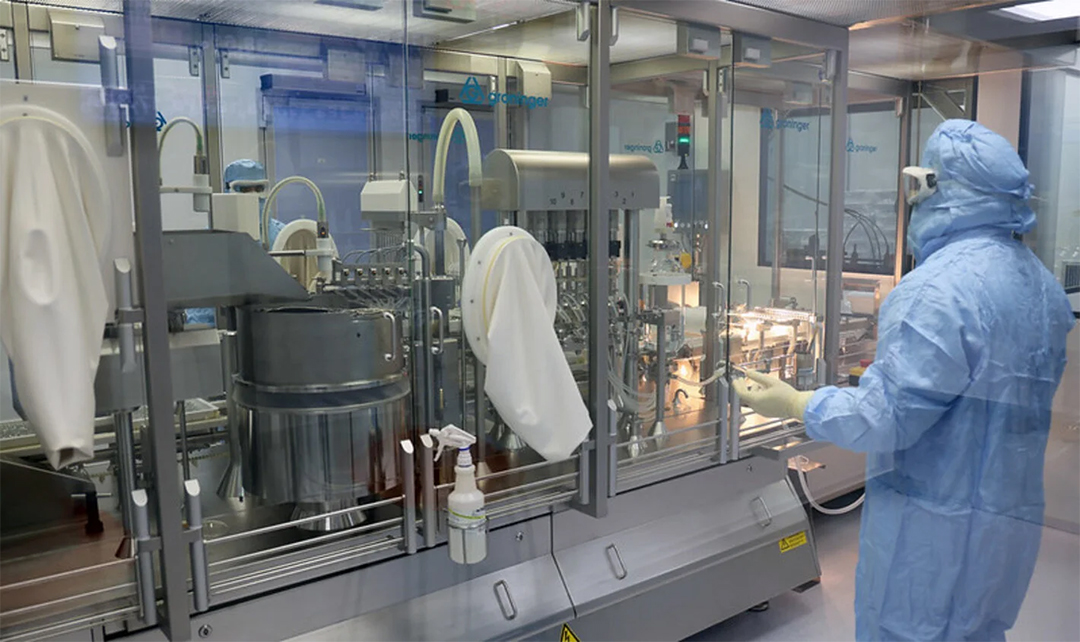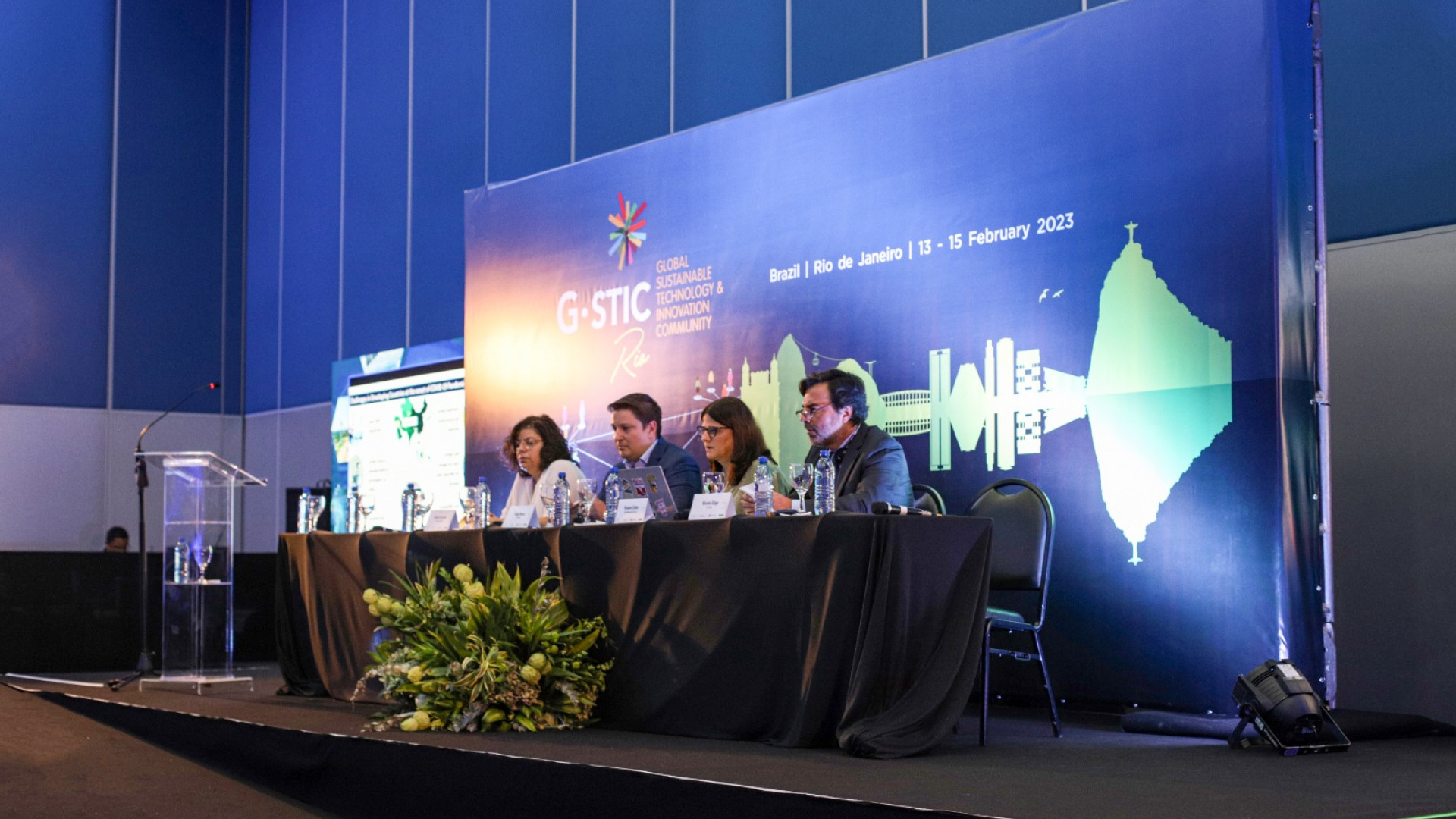Buenos Aires, February 15, 2023 (PAHO) — A mission of delegates from the Pan American Health Organization (PAHO), the World Health Organization (WHO), and the Medicines Patent Pool visited Argentina and met with authorities national health agencies and the biopharmaceutical company Sinergium Biotech in order to continue advancing technological transfer for the production of messenger RNA (mRNA) vaccines in the country for regional destination.
During the meeting that took place last Tuesday, the PAHO representative in Argentina, Eva Jané Llopis; the Minister of Health of the Nation, Carla Vizzotti; the senior technical officer at the WHO, Claudia Nannei, the director of Business Development at Sinergium Biotech, Fernando Lobos, and other officials evaluated the progress of the transfer program and analyzed the possibilities that this technology offers for the development of vaccines against the virus. SARS-CoV-2 as well as other priority pathogens for the region, and biotherapeutic products.
“The need for self-sufficiency in the region during the pandemic made us all wake up,” said Jané Llopis after giving the welcome and added that “it is a challenge and we will continue working from PAHO together with the Ministry of Health of the Nation and all the actors , to face the pandemics that may appear, and at the same time go further and investigate the different opportunities that messenger RNA technology allows and offer them to the entire Region of the Americas.”
The PAHO representative in Argentina highlighted the country’s leadership in the region in health matters, its ability to face this new challenge and celebrated the Argentine laboratory’s goal of “becoming a pioneer in the production of mRNA vaccines” among the 15 centers chosen in different places in the world.
Then, the minister referred to the importance of working together and with a strategic perspective and expressed the need to “develop sustainable public policies aimed at promoting the development of vaccines and other biotechnological products, expanding our production capacities for these strategic inputs and contributing to regional health self-sufficiency.”
Along the same lines, Nannei explained that in order to promote equitable access to vaccines, the purpose of the WHO and PAHO initiative is to establish a sustainable production capacity for mRNA vaccines in different countries and contribute to the collaboration and exchange of research between countries to expand knowledge about the potential of this technology.
For his part, the regional advisor on Pharmaceutical Policies and Innovation of the Medicines and Health Technologies Unit of the Department of Health Systems and Services of PAHO, Tomás Pippo, indicated that “local production is the way to improve access” and that “PAHO works to promote cooperation among member states and strengthen common policies.”
During his speech, Lobos mentioned the value of the existing collaboration between the different national and international actors, and “of PAHO, which has been on par since the beginning of the project to have the potential to move forward firmly and faster.” . The director of the laboratory also referred to the importance of choosing priority diseases for the region and Argentina in order to demonstrate the operation of the platform, and achieve a strong impact on the health of the entire region of the Americas.
The joint visit, which took place from February 7 to 9, is part of the global work program coordinated by WHO and the regional activities of the agreement between PAHO and the Department of Foreign Affairs, Trade and Development of the Government of Canada to increase local production capacities and improve equitable access to vaccines in Latin America and the Caribbean.
The mission was also made up of Christopher Chadwick, Cristina Bruno and Martin Nicholson from the WHO; Ike James of the Medicines Patent Pool; and the advisor of the PAHO Office in Brazil, María de los Ángeles Cortés who participated in the meeting, in addition to the advisor on Health Systems and Services, Sonia Quezada Bolaños, the head of the National Administration of Medicines, Foods and Medical Technology (ANMAT), Manuel Limeres; the director of the National Administration of Laboratories and Health Institutes (ANLIS) “Dr. Carlos Malbrán”, Pascual Fidelio, the president of the National Agency of Public Laboratories (ANLAP), Ana Lía Allemand; and the national director of Studies of the Ministry of Science, Technology and Innovation, Vanesa Lowenstein, among others.
The visit concluded with a tour of the Sinergium Biotech facilities followed by a technical meeting on first and second generation mRNA vaccines, intellectual property rights, purchasing processes, and financial and commercialization strategy and planning next steps. This activity also included the participation of representatives from the Bio-Manguinhos Institute of Technology in Immunobiology of the Oswaldo Cruz Foundation (Fiocruz), Patricia Cristina Da Costa Neves and Sotiris Missailidis.
More about the technology transfer program
En septiembre de 2021, la OPS anunció que la empresa Sinergium Biotech, en Argentina, y el Instituto de Tecnología en Inmunobiológicos de la Fundación Oswaldo Cruz (Bio-Manguinhos/Fiocruz), en Brasil, fueron seleccionados para la transferencia tecnológica.
Bajo esta iniciativa de cooperación internacional, expertos de ambos laboratorios trabajan en colaboración con el centro de transferencia de tecnología de ARNm establecido por la OMS en Sudáfrica para generar capacidades locales destinadas al desarrollo y producción de vacunas y otros productos biológicos.
To see published note click here.

